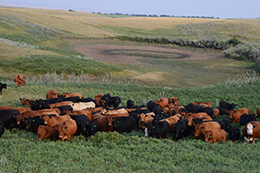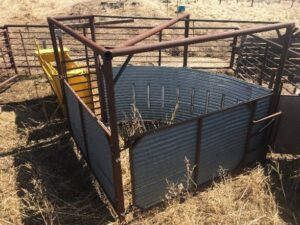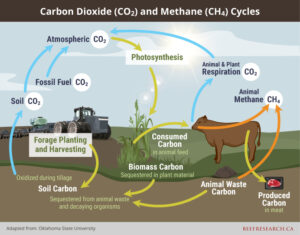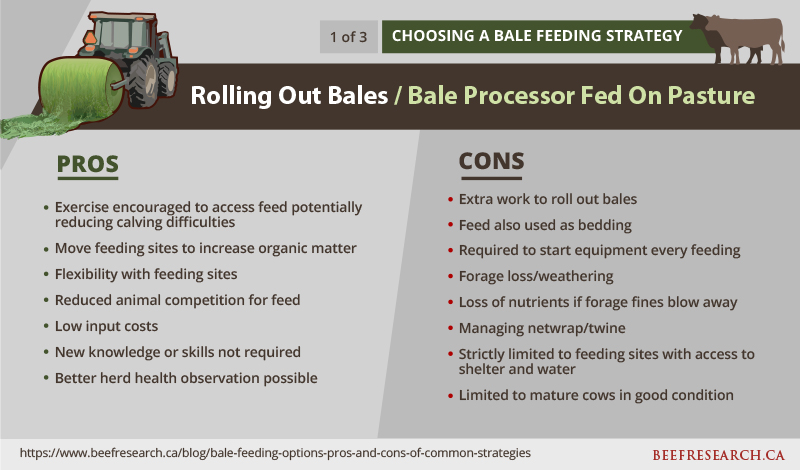What a Year -- Top 10 Articles from the BCRC Blog in 2021
Remarque : cette page web n’est actuellement disponible qu’en anglais.

This past year presented Canadian beef producers with a lot of different circumstances. Some challenges, such as a widespread drought, required responsive decision-making at times. Yet production cycles continue, and breeding, weaning and feeding activities need to be planned and prepared for.
Throughout the year, the BCRC published blog posts once or twice a week. Articles provide science-based insight into issues impacting Canada’s beef sector. Some articles from the past year featured producers’ perspectives and tips on topics such as animal-handling or how to improve forages. Other articles featured calculators and tools designed to help beef producers make strategic decisions. Some featured new research, while others focus on a timely response to on-the-ground challenges.
The BCRC strives to provide relevant science and economic-based information to producers throughout the year and we value the feedback of our audience. Which posts stood out for you? What are some topics you would like to see as we flip the calendar to a new year?
Below are the BCRC’s Top 10 blog posts of 2021.
10. Decision Making During Drought
Dealing with drought is hard, but there are some strategies producers can use to help them make the best of a tough situation. Marketing cull cows earlier than normal, drylotting cows or weaning calves earlier can reduce pressure on feed and pastures.
9. Tips for Starting Lightweight Calves on Feed
Producers may consider early weaning for one reason or another, however adjusting lightweight calves to feed, particularly when they are coming off dry pasture conditions, requires extra attention. Test feed and water, use a qualified nutritionist and implement reduced-stress handling methods when working calves to help them get the best start at a vulnerable time in their lives.
8. Seeing the Forest Through the Trees: Tips for Forest Grazing Cattle
Forested pastures are widespread across Canada and provide beef herds with both forage and shelter. Grazing treed areas can provide benefits such as reducing fuel load on the forest floor, however grazing needs to be managed in order to mitigate long-term impact on forest regeneration as well as the effect on soil compaction and erosion.
7. Patience, Silence & Observation – Practical Tips to Reducing Stress When Handling Cattle
Reducing stress when working cattle can improve conception, reduce illness, save time, and even improve profitability in beef herds – it’s also more fun. This article is full of ideas that are in practice at the farm level.
6. What’s the Most Profitable Post-Weaning Choice for your Calves?
Evaluating post-weaning options can help producers identify the economic opportunities and risks of preconditioning or backgrounding. This calculator plugs in on-farm numbers to help users identify what makes the most sense for their scenario.
5. Beef Cattle and the Carbon Cycle
Every living thing contains carbon and everything – including cattle and grasslands – are part of a carbon cycle. On one hand, cattle emit greenhouse gases as natural by-products of rumen fermentation. On the other hand, forages and grasslands effectively capture and store carbon belowground.
4. Winter Feed Cost Comparison Calculator – Managing Variable Costs
Winter feed represents the single largest variable cost beef producers face each year. This calculator demonstrates how producers may be able to manage costs by adjusting rations and using alternative feeds.
3. Bale Feeding Options: Pros and Cons of Common Strategies
Feeding bales is a common practice across Canada. Whether you roll out bales, place them for bale grazing, or use a bale feeder, these various strategies have different pros and cons.
2. Salvaging a Crop? Here are Some Things to Consider When Valuing a Crop for Feed
When beef producers look for feed during shortages, it may make sense to partner with cash cropping neighbours looking to salvage a crop. How do you find common ground when establishing a value? This calculator weighs out the costs to both beef producers and crop farmers.
1. Calf 911 – New Video Demonstrates Effective Calf Resuscitation Strategies
Calving is a natural process and while everything typically goes well, occasionally intervention is necessary. The BCRC created a video demonstrating proper resuscitation techniques, as well as tips to ensure calves have adequate colostrum at birth, and how to manage dehydrated calves using electrolytes.
What do you think of the list? Comment below and tell us what you want to learn about in 2022.
If you’re interested in the top picks from other years, click to see the 2020 list and the 2019 selection.
Click here to subscribe to the BCRC Blog and receive email notifications when new content is posted.
The sharing or reprinting of BCRC Blog articles is welcome and encouraged. Please provide acknowledgement to the Beef Cattle Research Council, list the website address, www.BeefResearch.ca, and let us know you chose to share the article by emailing us at info@beefresearch.ca.
We welcome your questions, comments and suggestions. Contact us directly or generate public discussion by posting your thoughts below.



